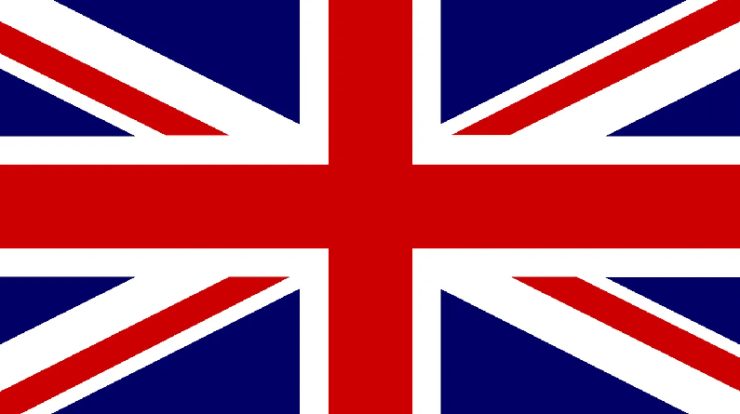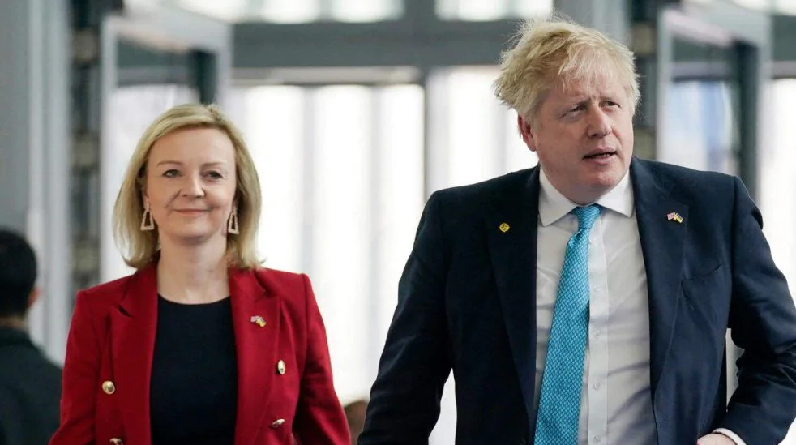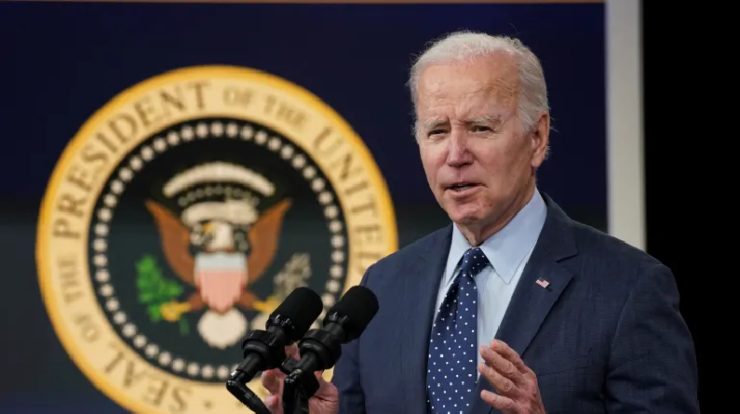
“Never interrupt your enemy when he is making a mistake,” Napoleon once advised. The British opposition Labour Party, led by Keir Starmer, took that advice to heart and implemented it for the next 18 months. Until this past week, that is. On Wednesday, Starmer disproved Bonaparte’s prediction by taking action that threw the ruling Conservative Party into chaos, all but guaranteeing a victory for himself and his party in Britain’s next election.
An Overview of Events to Date
Boris Johnson’s scandal-plagued premiership came to a head in July. He resigned amid a storm of largely self-inflicted wounds, without Starmer lifting a finger. The Conservative Party’s members and legislators chose Liz Truss as their new leader, and she became prime minister without a new election being called.
Like Johnson before her, it was obvious that Truss didn’t need any outside help to bring down her own prime ministership. With promises to lower taxes (mostly on the wealthy), freeze energy prices, and increase borrowing, she unveiled a disastrous “mini-budget.”
For one thing, it was an outrage to democracy that the mini-budget abandoned so many of the Conservatives’ campaign pledges for the 2019 election. The country was being forced to make a U-turn by a new leader who had never run for office.
To put it mildly, the plan was an economic and political mistake. The market froze in fear. The value of the pound fell precipitously. The cost of getting a mortgage has skyrocketed. The Bank of England had to buy government bonds, as it had done before during similar times of economic uncertainty.
There then ensued a series of crises. After the mini-budget was passed, Truss replaced her finance minister with a moderate who immediately rolled back most of the cuts. Then, Truss fired one of his advisors for making inflammatory comments to the media. Then the interior minister resigned due to an email that was accidentally sent twice, though most people believe she was let go due to her disagreements with Truss over immigration policy. In a nutshell, tensions that had been building for some time but were unrelated to the mini-budget suddenly erupted in a state of disarray.
But the clincher occurred on Wednesday of this week. At this juncture, Labour made a strategic move out of hiding.
Ultimately, a vote on hydraulic fracturing was what it came down to (known as fracking). The 2019 election was won by the Conservatives, who promised to uphold the nation’s fracking ban. However, Truss proposed ending the ban as part of his mini-budget.
In spite of Conservative party divisions, Labour insisted on a vote on the matter in Parliament. Lawmakers from the Conservative Party had to decide whether to vote with Labour and show their support for a ban on fracking, or to vote with their own party and break a promise made in their party’s platform. Alternately, they could side with Truss and vote to lift the restriction. Truss reminded them that the vote wasn’t actually about fracking. A vote like this is a vote of confidence in the government. The least popular British government ever has spoken out with courage.
The vote went to Truss, but Labour’s strategy was successful. The news that senior politicians had physically intimidated their colleagues into voting with the government quickly spread. Conservative whips, who had been left in the dark and were angry about the situation, resigned and then reversed their decision within a matter of hours. As far as I could tell, no one had faith in Truss. She submitted her resignation yesterday afternoon, making her the shortest-serving British prime minister ever. Within the next week, the Conservatives will select her successor. The people of the United Kingdom will be denied the opportunity to vote on the person who will serve as their next prime minister.
Conservatives with Personality Disorders

When faced with such a mess, what can one possibly say? There are two immediate thoughts. To begin, the Conservative Party is riven by internal contradictions that are threatening to tear Britain apart. Her downfall will be widely attributed to a botched “mini-budget.” Much of this mayhem could have been avoided if the Conservative Party hadn’t been in such disarray to begin with.
It may be hard to believe, given the current state of the Conservative Party, but the Tories are the most successful political party in human history. For nearly two centuries, they have played on the British people’s (read: English people’s) underlying aversion to significant change. Together, they have spent 47 years in power since WWII, sometimes accepting change (as Winston Churchill did when he agreed to the postwar welfare state) and sometimes forcing it (as Margaret Thatcher did when she implemented her radical free market policies in the 1980s).
This openness, however, has led to many different interpretations of “Conservatism” within the party. In the Conservative party’s large base, for instance, you can find both free market globalists and communitarian nationalists. In the case of the Truss administration, a relatively liberal economic policy coexisted with a socially conservative (and, in the eyes of some, authoritarian) stance on immigration.
Existence of divergent viewpoints within a single party is not necessarily a bad thing. I remember hearing a conservative politician say that having only two options for elective office forces political parties to compromise and form “coalitions” of different ideologies, which is good for democracy. By limiting the influence of any one group and keeping the party from veering too far in one direction, diversity helps keep us firmly planted in the political centre.
Until, that is, it increasingly doesn’t. The Conservatives have been completely confused since Brexit. Do they believe in free markets? Do they see themselves as social welfare warriors who want to reduce immigration? Considering my Conservative leanings, I don’t stress over this nonsense (I certainly am not). The rush to fill the void with short-termism, personality politics, and incompetence worries me. And it seems like everyone is hurting right now.
So this is the setting in which Truss came to power. Despite her preference for staying in the EU, she praised Brexit for the opportunities it presented. Despite her predecessor’s victory on a platform of economic intervention, she pledged to return the Conservatives to their “true” roots of low taxation and free enterprise. She was ultimately unable to resolve the internal conflicts within her party and failed to rally the country behind a unified platform. “The parliamentary party has proven itself to be ungovernable,” a Conservative lawmaker said.
Of course, Truss bears much of the blame for the destruction. But it’s also obvious that her downfall was due to more than just a bad financial decision. It was indicative of how confused and disorganised the modern Conservative Party has become. Her predecessor, the bumbling Boris Johnson, was notorious for his flip-flops and inconsistencies. David Cameron’s administration marked a period of relative consistency that has since passed.
The United Kingdom Requires Deep Changes
The problems of Great Britain can be solved easily by postponing action until the next general election. The tide of public opinion has turned against the Conservatives, and that party’s time in power is probably coming to an end. It needs to face stiff opposition for a while to motivate it to get its act together.
Even though this is correct, it is insufficient. We need to address the system’s underlying structural conditions that allowed for this destructive behaviour to emerge.
First of all, we must reject any proposal that would allow the members of a single political party to select the prime minister. Our institutions, which are currently largely governed by custom, need to be governed by a set of written rules. A new election should be called whenever the prime minister resigns. One cannot just go around telling people to follow a policy agenda that could have disastrous consequences. This is especially true during times of economic turmoil, when the public is counting on its trusted leaders to solve the country’s problems in a responsible manner despite the increased burden on their wallets. And electing that government is the only way the people will have faith in it.
See Also: Some Of The Most Hyped Jordans Available Right Now
Second, we must abandon the idea of a system in which the ruling party alternates every few years between two others. We need a proportional representation system, as the current first-past-the-post system allows a party to claim a mandate with as little as 35% or 40% of the vote. Multiple smaller parties that compete with one another will be a healthier external manifestation of the diversity that currently coexists uncomfortably within the two larger parties. As in the rest of Europe, coalition-building will become the norm. The political turmoil will continue even if this happens. As a result, the British people won’t be trapped between the two major parties forever, where they’d have to put up with the same old problems (which are especially egregious in the current Conservatives) year after year.
Will anything at all come of this? Most likely not. It is absurd to think that the Conservatives would introduce such change. However, Keir Starmer, like every Labour leader before him, is strangely hesitant to reform Britain’s sclerotic system, despite the fact that it will likely put him in power.
It would be the beginning of a new era in British politics if the Conservatives were to lose the next election. However, regardless of which party wins the election, Britain will continue to suffer from the underlying structural flaws that left the country open to Truss’s destruction.

